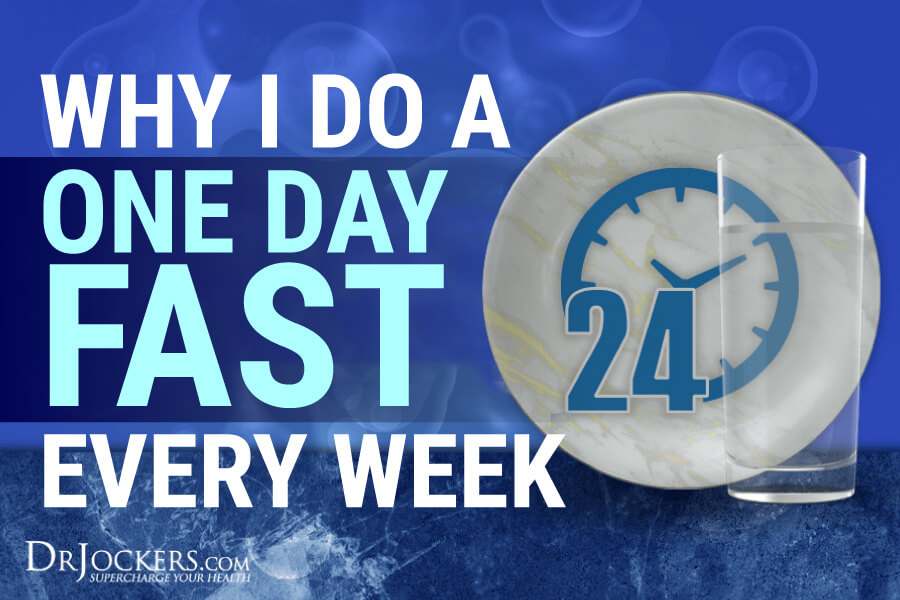 Why I Do a One Day Fast Every Week
Why I Do a One Day Fast Every Week
If you’ve been following me for a while, you know that I am a big fan of fasting. One of my favorite practices that allows me to feel my best is doing a one day fast. A one day fast can help to improve autophagy, reduce inflammation, support the immune system, and boost energy.
In this article, you will learn about the benefits of intermittent fasting and why taking a break from eating is a good idea. I will share three one day fast strategies that you may try. You will learn how to do a one day fast, what to drink, when to exercise, how to break the fast, and how to support elimination.
I will explain the importance of a fasting ritual to support your one day fast practice. I also go over who would benefit from this and who shouldn’t do a one day fast.
Benefits of Intermittent Fasting
Intermittent fasting is a way of eating that involves a period of voluntary fasting and a period of non-fasting over a certain timeframe.
Intermittent fasting has many health benefits, including immune support, greater autophagy, and improved insulin sensitivity. Let’s take a look at all these benefits.
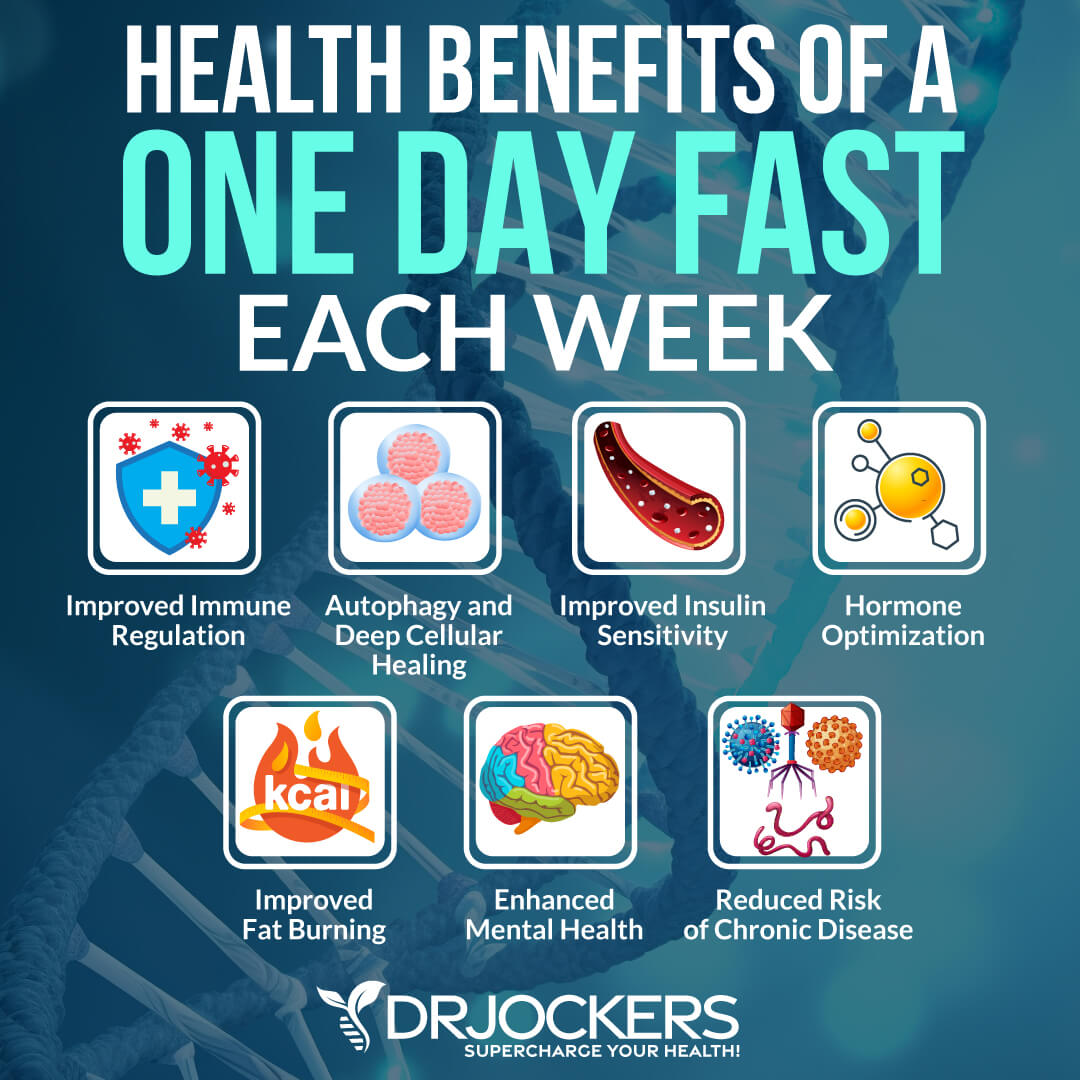
Intermittent Fasting Improves Immune Regulation
Your immune system is a critical part of your health. It helps to protect you from pathogens and supports your recovery if you get an infection or illness. The practice of intermittent fasting allows effective immune regulation in your body. Drinking lots of water and fluids helps to cleanse your body of toxins and reduce bad bacteria in your gut. It also gives your digestive system a break, which allows further repair and healing.
Intermittent fasting helps to control the level of inflammatory cytokines in your body. While cytokines are essential for healing when you are sick, too many of them can lead to a cytokine storm, inflammation, and more severe symptoms. By controlling cytokines, intermittent fasting can prevent a cytokine storm, reduce inflammation, and improve your immune system (1, 2, 3, 4).
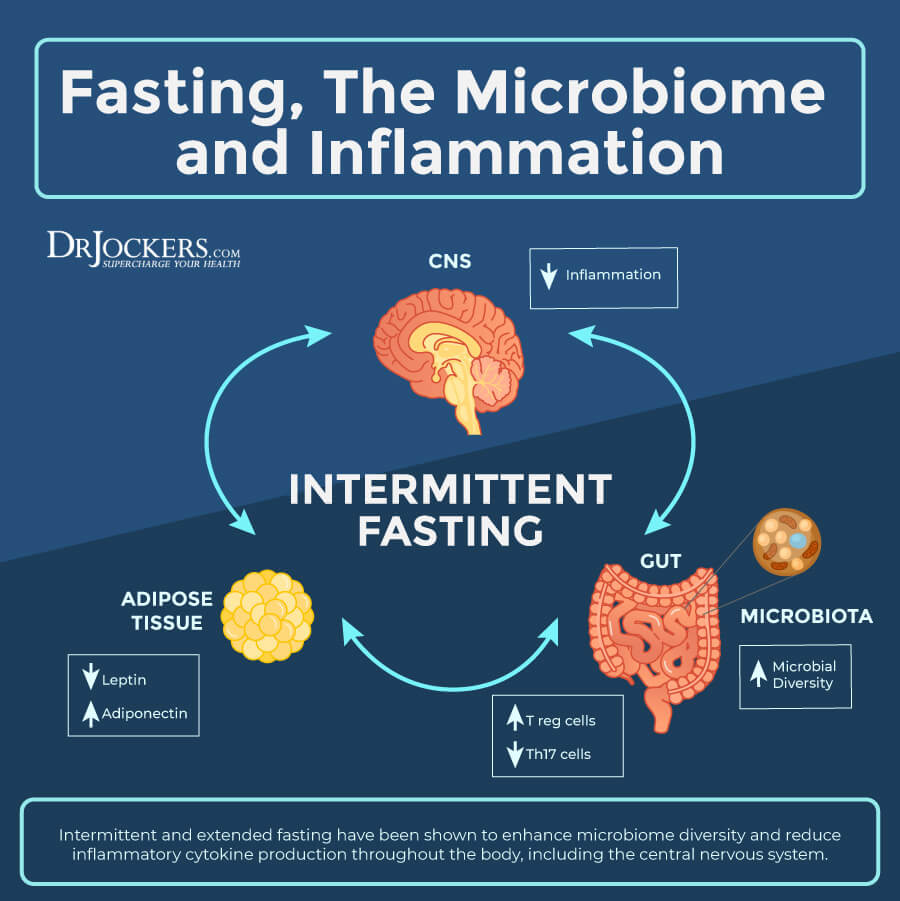
Intermittent Fasting Stimulates Cellular Autophagy
Autophagy is part of your body’s innate immune system and utilizes pattern recognition receptors to identify viable cell invaders. It allows the degradation and recycling of old, damaged, and unhealthy cells and cellular components and the creation of new and healthier cells.
Intermittent fasting can effectively stimulate the process of autophagy. As a result, it may restrict viral infections and the replication of intracellular parasites. It helps your body to get rid of intracellular pathogens, reduce toxicity, and lower inflammation (5).
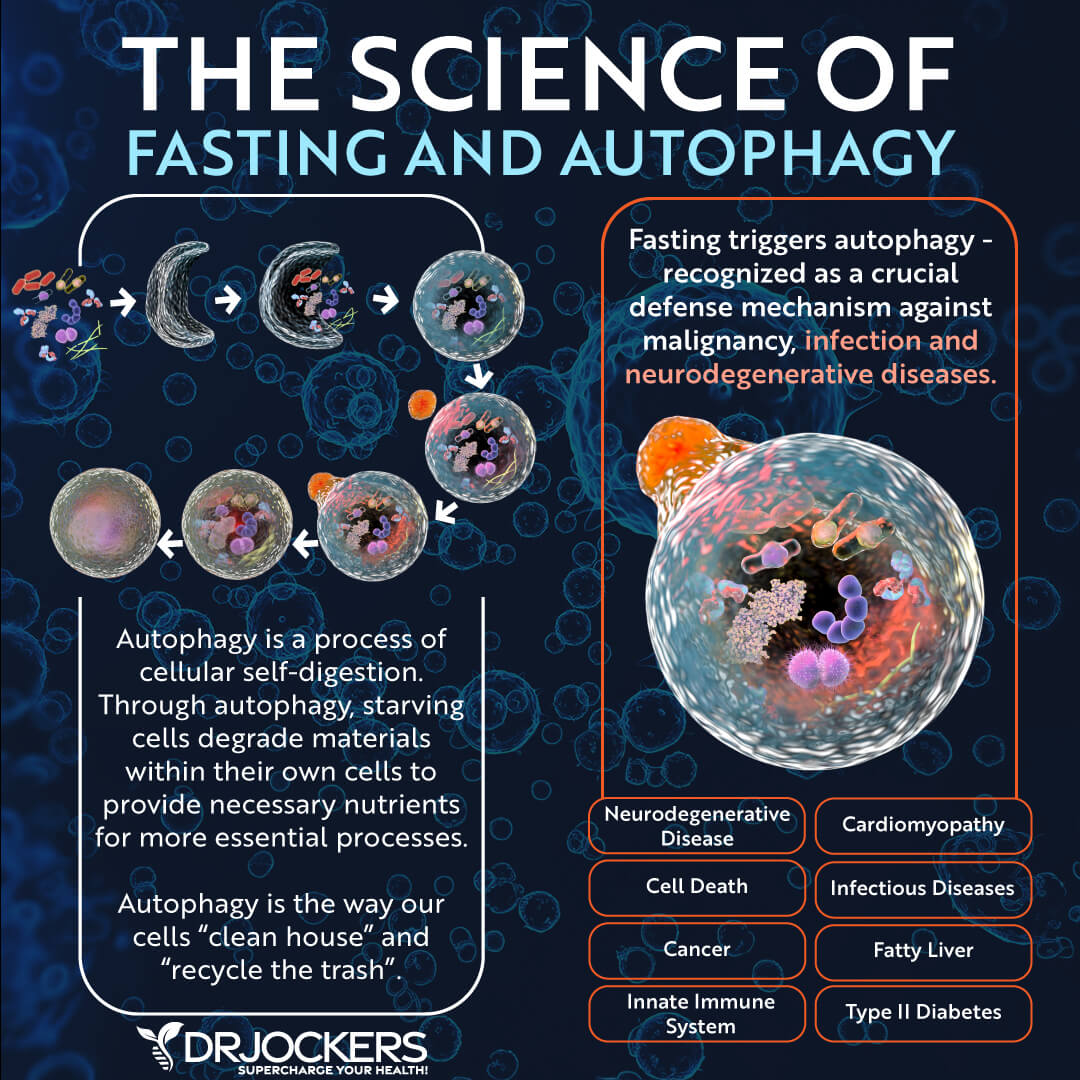
Intermittent Fasting Improves Genetic Repair Mechanisms
Researchers have found that your cells have a greater lifespan during food scarcity and famine, which can be achieved through intermittent fasting. Intermittent fasting helps to improve cellular rejuvenation.
When you are fasting, your body slows down cellular division to conserve energy for later. Since cancer cells are driven by out-of-control cellular division, intermittent fasting can help slow the growth of cancer cells. Intermittent fasting can also increase the production of human growth hormone (HGH), which helps fat burning, muscle tissue sparing, and cellular repair (6).
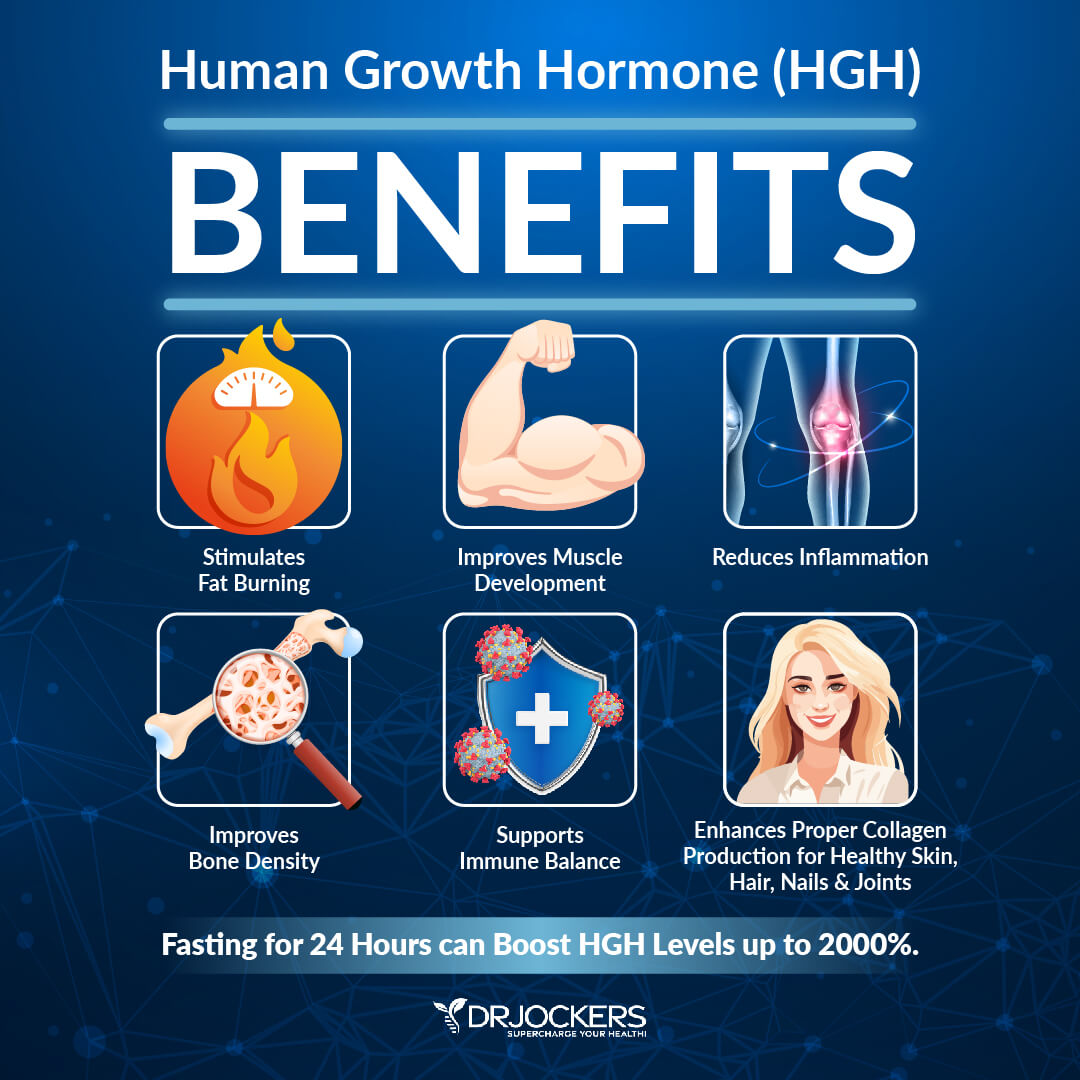
Intermittent Fasting Improves Insulin Sensitivity
Throughout history, the human body has adapted to alternate between phases of food scarcity and abundance. It has also learned to become more efficient during times of food scarcity and to use or store every bit of food efficiently.
During food abundance, your body desensitizes your cells to insulin to avoid stress from heavy calorie intake. However, this can result in elevated insulin levels, higher inflammation, and increased oxidative stress.
Food scarcity, or fasting, on the other hand, can have the opposite effect by reducing insulin secretion, improving cellular insulin sensitivity, decreasing inflammation, and reducing the overall demand for insulin (7, 8).
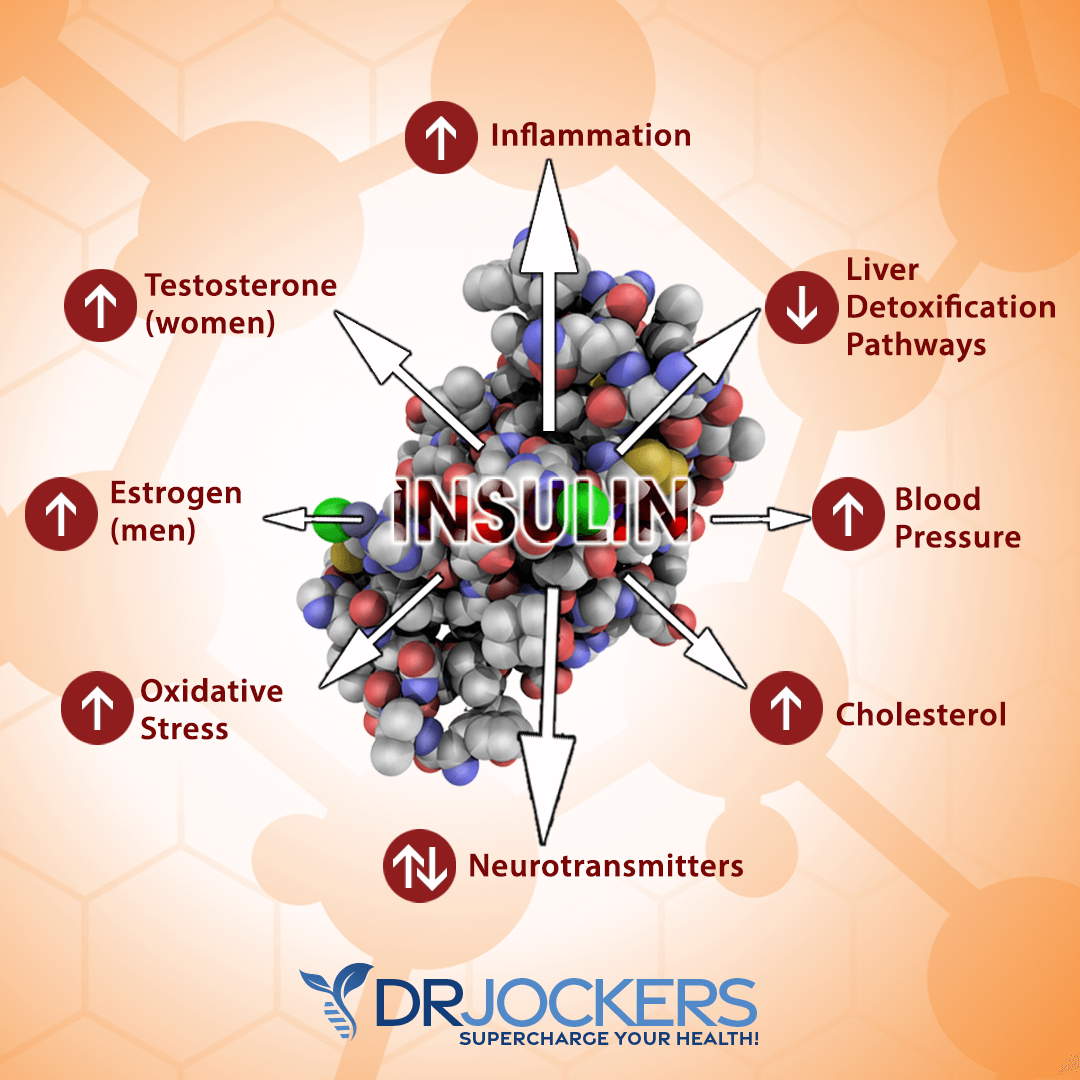
Intermittent Fasting Reduces Chronic Disease
People with autoimmune diseases and other chronic or inflammatory conditions may experience serious benefits from intermittent fasting. Intermittent fasting can reduce hyper-inflammatory processes that can increase symptoms or lead to disease. It can also improve immune function and increase energy.
Intermittent fasting may also reduce oxidative stress and free radical damage. By taking away sugar as fuel, it may help to starve cancer cells, reduce the risk of further destruction, and promote repair and recovery (9, 10, 11).
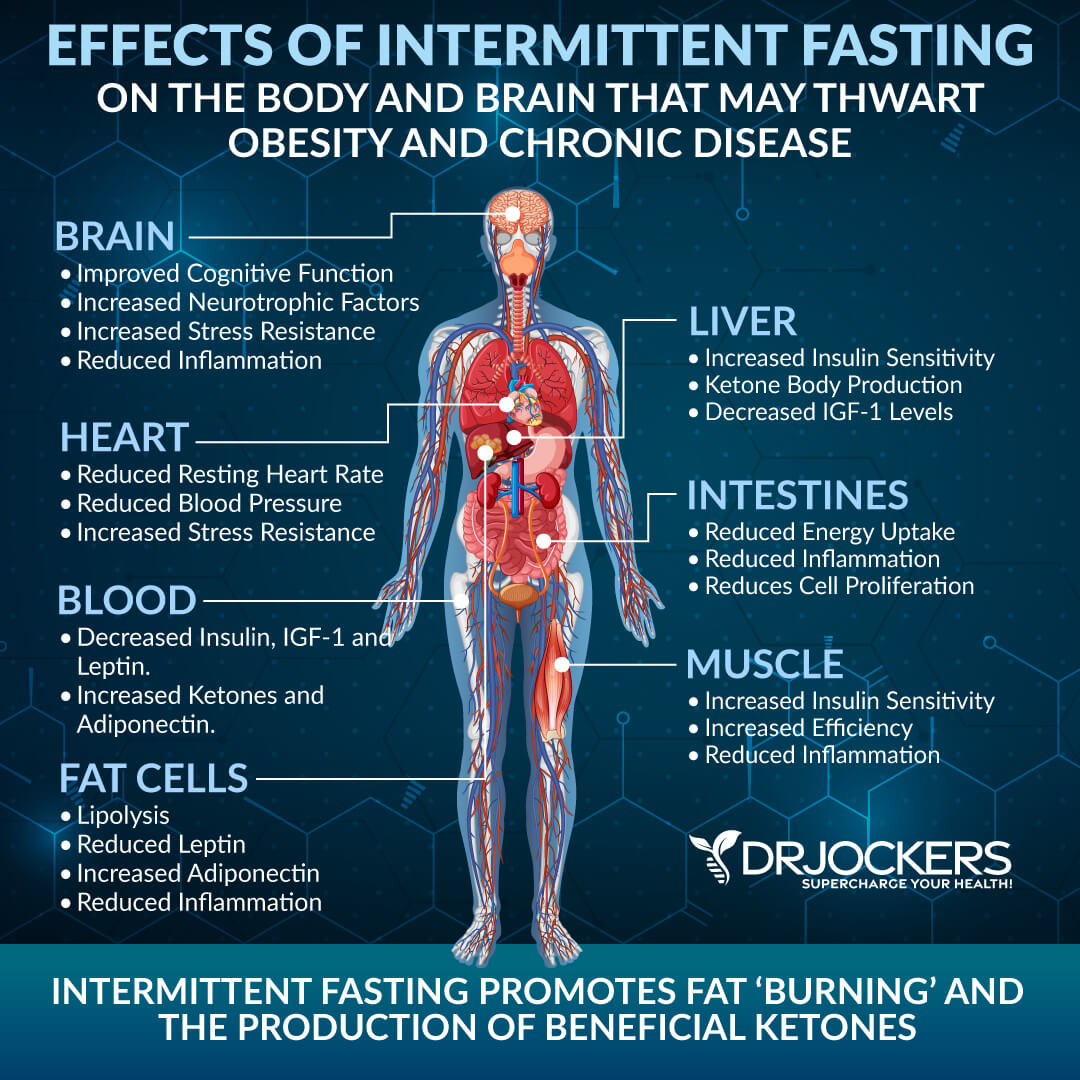
Taking a Sabbath
The word “Sabbath” derives from the Hebrew word Shabbat, and it means “rest” or “cessation.” Sabbath is a day of rest that entails refraining from work activities and engaging in restful activities.
In our modern life, it may also mean staying away from or reducing the use of social media or technology as well. It often means attending religious services, prayer, or other spiritual activities. Of course, you don’t have to be religious in order to enjoy a day of rest.
The Jewish Sabbath or Shabbat is held on Saturday, as the bible states that God made all of creation in 6 days and rested on the seventh day. The seventh day of the week is Saturday. The Roman Catholic Church later changed the Sabbath to Sunday, and today many Christians observe their Sabbath on Sunday. I personally follow a Saturday sabbath as I feel it is what the early Christians, including Jesus himself, practiced, and it is the only day the bible infers to be the Sabbath.
How and when you choose to take your Sabbath may depend on your specific religion and spiritual practices, or just when you can fit it into your schedule. You certainly don’t have to be religious to enjoy a day of rest every week. Even more importantly, a day of rest doesn’t have to be only about slowing down, not working, and prayer. You can choose to observe it in any way that makes sense for you.

A One Day Sabbath Fast
To truly honor our body’s need for rest and repair, taking a Sabbath from food, or a one day fast, can be a fantastic idea. A one day fast can allow your body to rest and heal while also allowing time for emotional healing, spiritual contemplation, and getting closer to God. It helps you experience the health benefits of fasting and intermittent fasting you’ve just learned about.
While Sabbath is a fantastic time to try a one day fast to take a Sabbath from food, if it is not the best day for your schedule, you may choose any other day that works for you. No matter when you decide to take a one day fast, your body, mind, and soul will thank you.
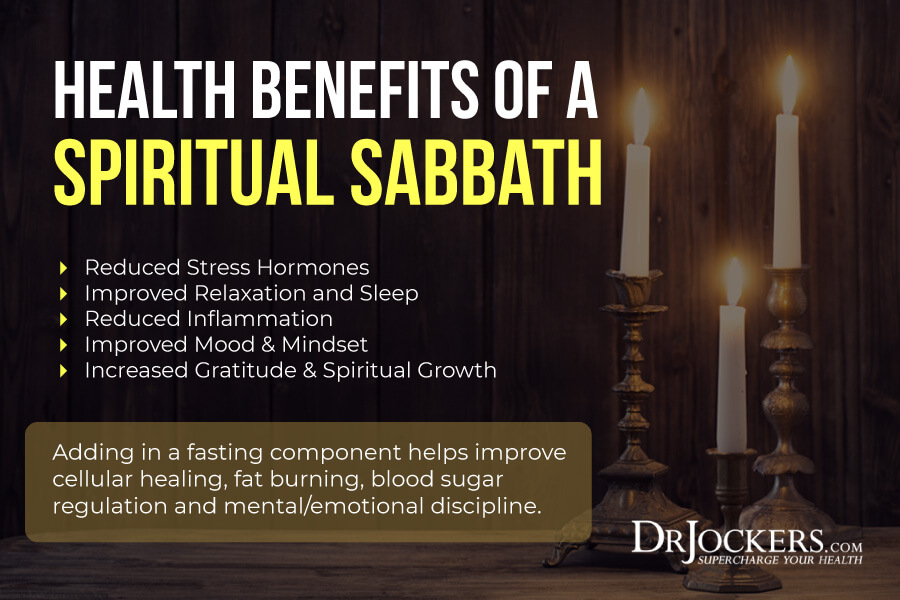
How To Do a One Day Fast
The are several ways to try a one day fast depending on your health, fasting experience, personal goals, and schedule.
22 to 24-Hour Fast
Taking a 22 to 24-hour fast is a true one day fast when you are fasting for 22 to 24 hours. You may try a lunch to lunch or a dinner to dinner approach. With the lunch to lunch one day fast, you can stop eating after lunch and not eat for 22 to 24 hours until lunch the next day.
With a dinner to dinner approach to a one day fast you may stop eating after dinner and not eat until dinner the next day, 22 to 24 hours later. Which approach to choose is your choice, depending on your personal preference or schedule.
My wife Angel and I do a 22-24 hour fast each week on Saturdays or Wednesdays. Sunday is typically our feast day, where we eat a higher number of calories and carbs than we normally do.
36 to 42 Hour Fast
Trying a 36 to 42-hour fast is more than a one day fast and is a great idea if you have already done and done well on a 22 to 24-hour fast. This one day fast, or rather, one and a half day fast, involves three days total. One day one, you still eat dinner, but stop eating after. You will be fasting all day on day two.
You will continue fasting on day three until lunch and conclude this more than one day fast with lunch on day three. This is a great opportunity to prepare your body for extended fasting if that’s your goal in the future.
5:2 Fasting
The 5:2 fasting method involves two one day fasts each week. If you feel good at doing one day fast, you may also enjoy doing two 24 to 40-hour fasts each week.
You may do two one day fasts, 24 hours each, or you may go straight to two days with a 40-hour fast once a week. I feel my best when I do one 24-hour fast each week. I recommend that you experiment and see what works for your body.
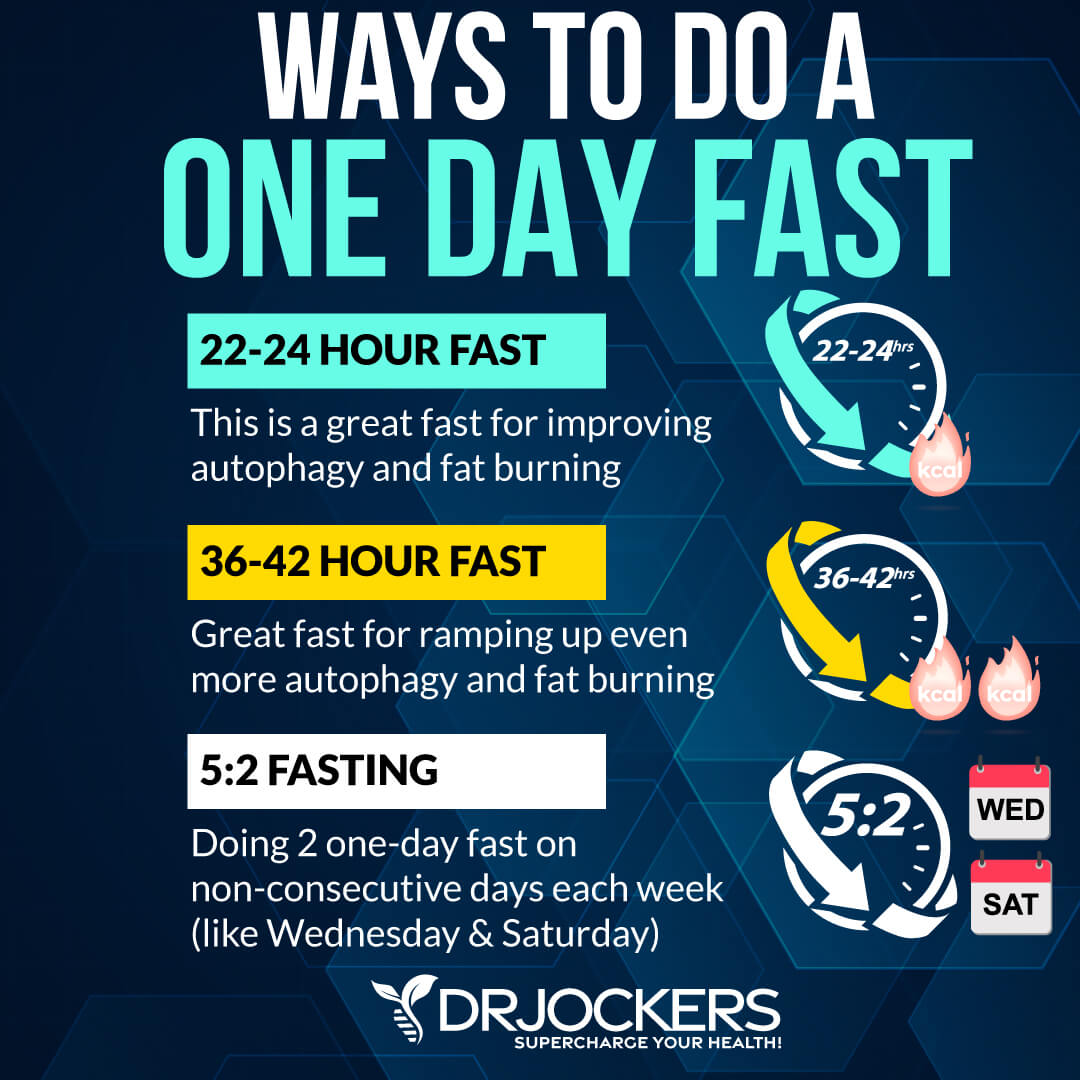
What I Allow On The One Day Fast
If you are ready to embark on a one day fast, you may wonder what’s allowed. Taking a one day fast, obviously, means no eating for 22 to 24 hours. However, non-caloric liquids are allowed. It is important that you start your day with 32 oz of clean water and continue drinking plenty of water throughout the day to allow detoxification and hydration.
Herbal tea and black coffee are also allowed. However, since coffee is a stimulant, it is good from time to time to fast from caffeine as well. I also recommend adding apple cider vinegar, lemon, or lime juice to your water for extra cleansing and alkalizing benefits. If you are feeling low on energy, you can add a pinch of salt to your water or drink a bit of pickle juice for electrolytes.
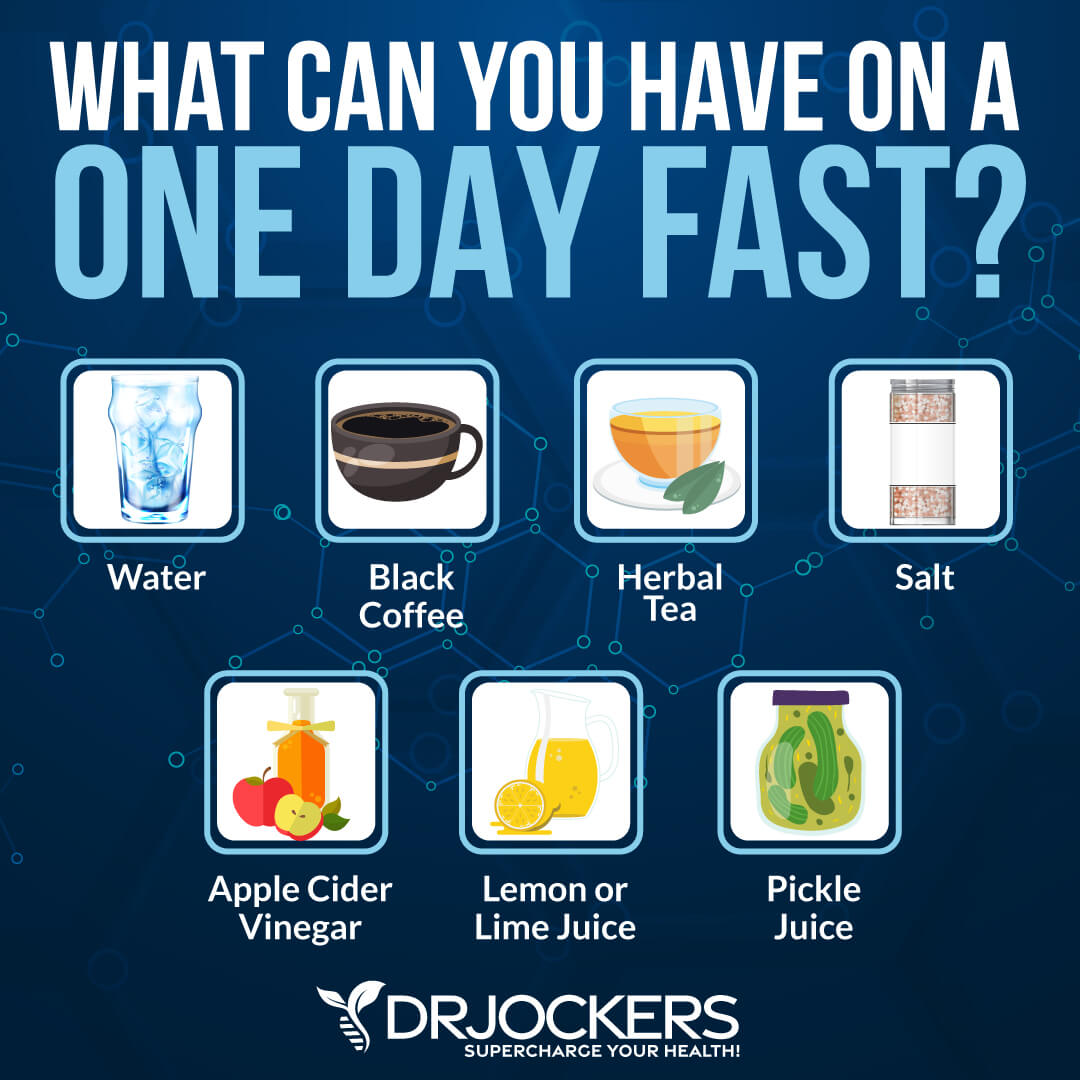
Should You Exercise on the One Day Fast
I recommend moving your body during the one day fast. However, it is also important that you wait until the very end of the one day fast if you want to do high-intensity training or resistance training.
This can be a powerful way to build lean body tissue and burn fat because your human growth hormone levels will be at their highest. During your actual fast, stretching, light walks, or low-impact exercises, such as yoga, may be a good idea.
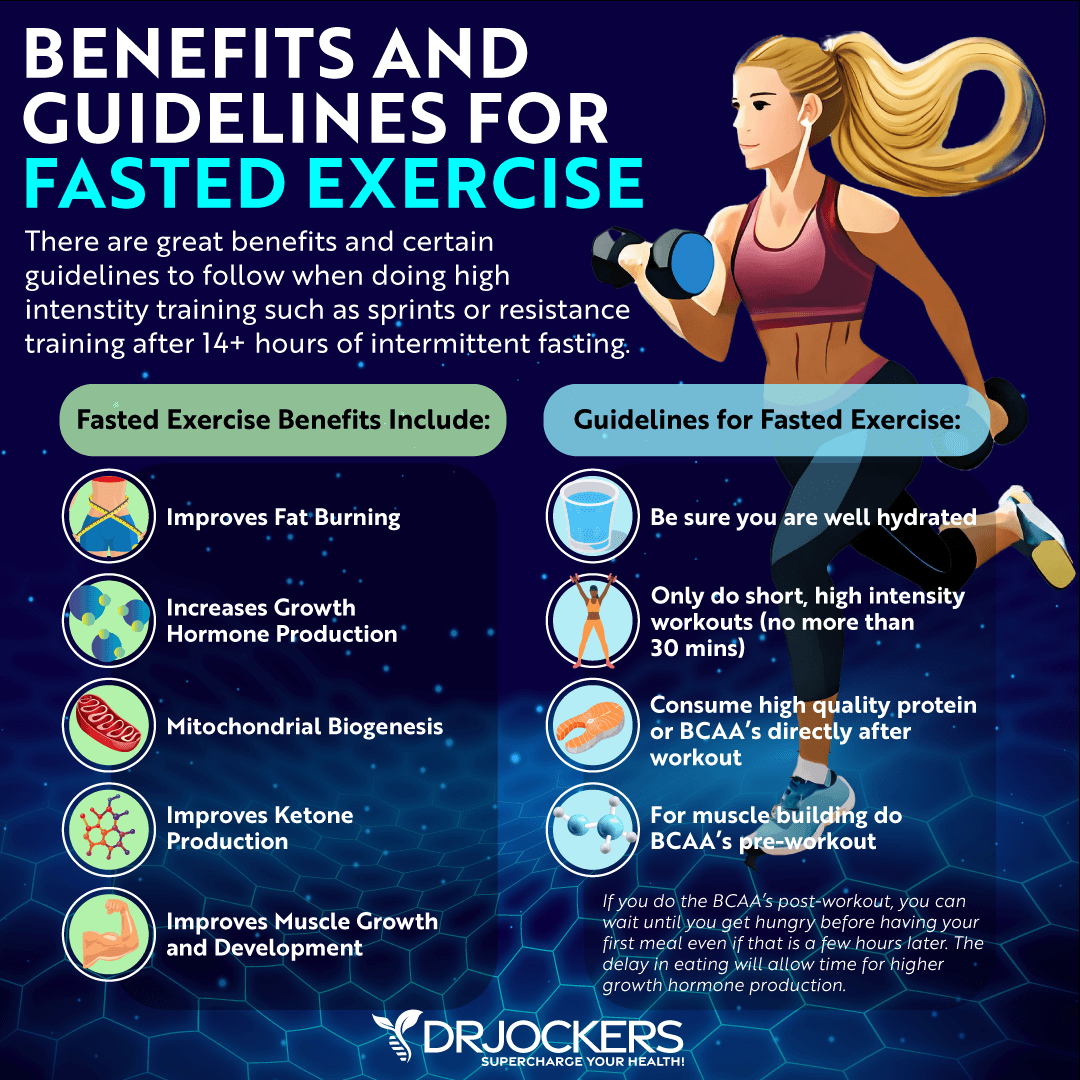
Best Way to Break Your One Day Fast
Breaking your one day fast properly and safely is absolutely critical. Unlike during an extended fast, your digestive system doesn’t entirely shut down during a one day fast. However, it is a good idea not to overwhelm your body with heavy foods or too much food.
I recommend that you initially break the one day fast with some fermented food, bone broth, or a protein shake. I understand that you may be hungry and ready for something more substantial than a shake. If you are going to eat a normal dinner, no problem, but it is still a good idea and beneficial to your body to include some fermented foods or have some water with apple cider vinegar about 15 minutes before the meal to support your digestion and metabolism. You can also consider adding some digestive enzymes and HCL to support optimal digestion.
Of course, it is also important that you eat anti-inflammatory, nutrient-dense real food, such as greens, vegetables, low glycemic index fruits, healthy fats, and clean protein, when you break your one day fast, as well as, on your non-fasting days, and stay away from refined sugar, refined oils, high carb meals, artificial ingredients, processed foods, and junk food. You may learn about a healthy anti-inflammatory ketogenic diet I recommend in this article.
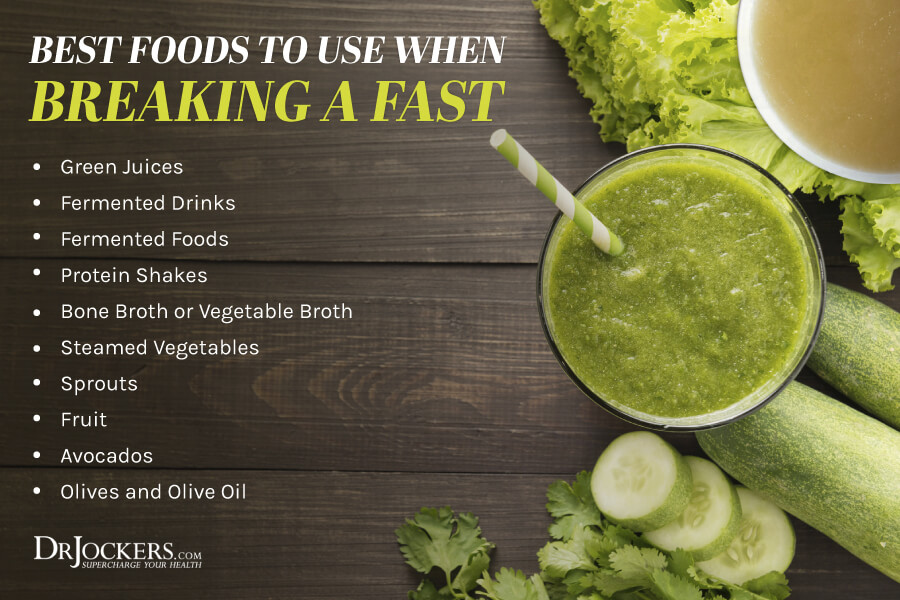
Having Bowel Movements on One Day Fast
Having regular and healthy bowel movements is critical for your digestion, detoxification, and overall health. While most people don’t have a problem with this, for others, the act of chewing and digesting moves the bowels out.
If you have issues with constipation, I recommend that you drink water or add one tablespoon of salt to your water to help your body flush out. If you need further support, you may also try Oxy Powder or Bowel Mover to keep things going.
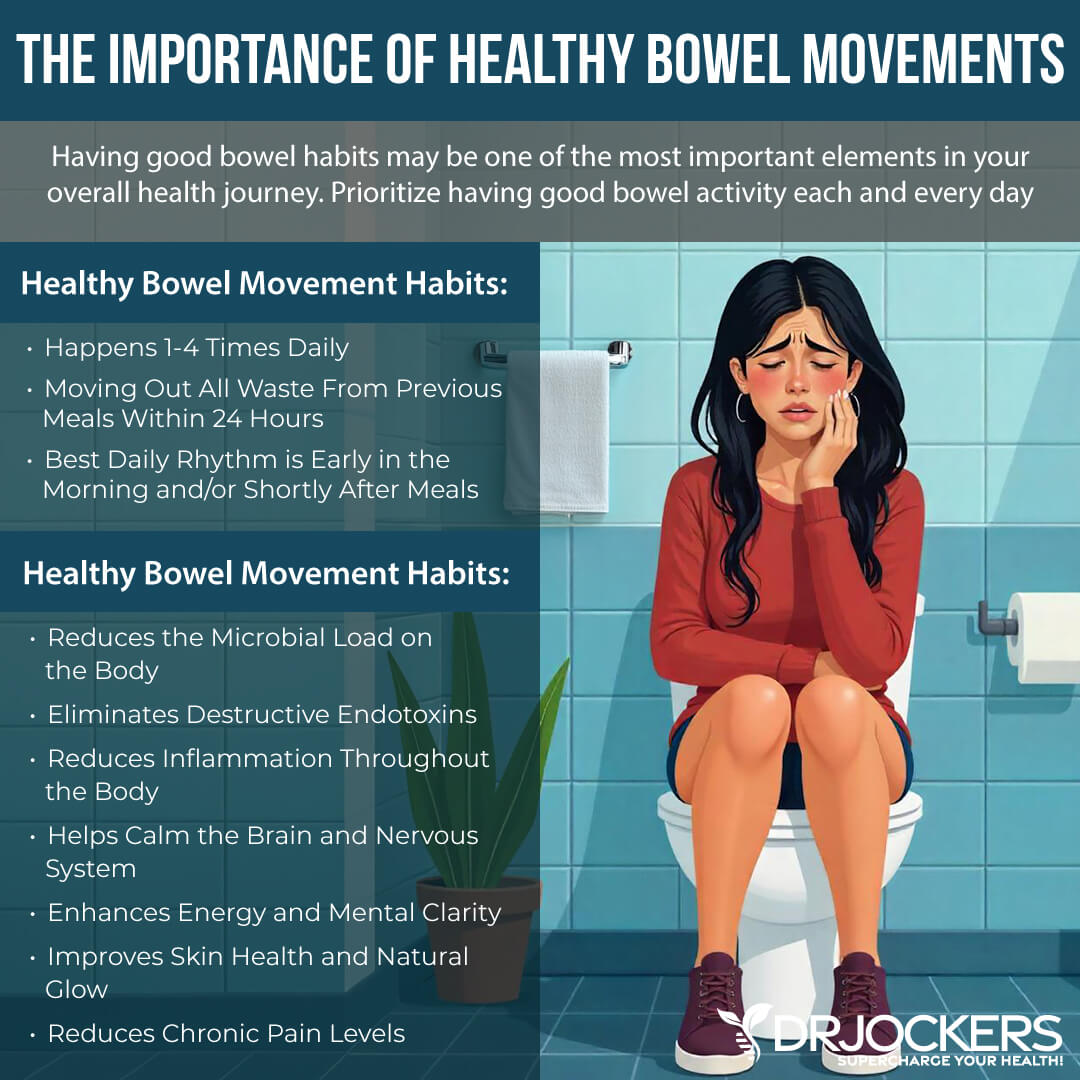
Creating a One Day Fasting Ritual
Doing a one day fast each week is a great idea. I recommend that you create a one day fasting ritual to stay consistent. If you are already observing Sabbath or have a Monday to Friday work schedule, the weekend may be the best time. However, if that doesn’t work with your personal schedule, you may choose any other day. I recommend that you try to keep it consistent each week, it can also help you implement it when you are traveling.
Along with consistency, you may also want to add some other practices during this one day fast. Slowing down, stretching, meditation, journaling, breathwork, time in nature, reducing stress, reducing time spent with technology, reading, gratitude, and prayer are all fantastic ideas to support body, mind, and soul rest and healing.
If your entire family or part of your family is fasting together, you may develop some rituals together. Even if they don’t take a one day fast, you may still engage in some mutual restful activities such as a family walk in nature or praying together.
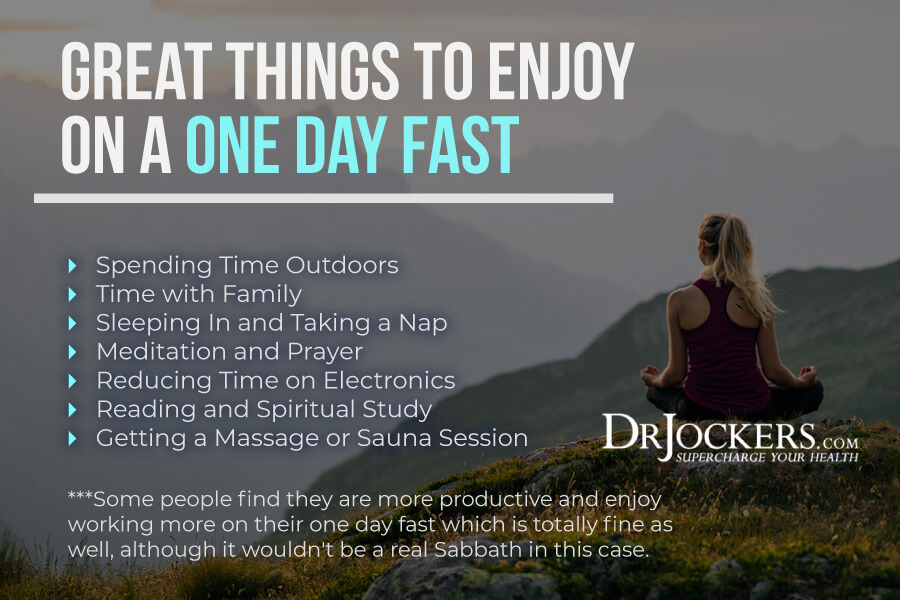
Who Should Not Do a One Day Fast
As great as a one day fast is for the majority of the population, there are obviously certain cases where I do not advocate doing this long of a fast. These cases include
Individuals with Eating Disorders
Pregnant Women and Newborns
Young Children
Individuals with Type I Diabetes
Extreme Athletes Who are in Season
Individuals Who Are Severely Underweight
Individuals Who Are on Medications (Especially diabetes medication, anti-seizure meds, and corticosteroids, as these can impact blood sugar levels)
In some of these cases, fasting can be extremely helpful, but it needs to be done with caution and a trained healthcare practitioner. An example of this would be an overweight pregnant woman who is at risk for preeclampsia.
Intermittent fasting for 16-18 hours and perhaps even up to as much as 20-24 hours could help her to improve her blood sugar and blood pressure and make her internal environment safer for the baby. But again, this needs to be done with a trained healthcare practitioner.
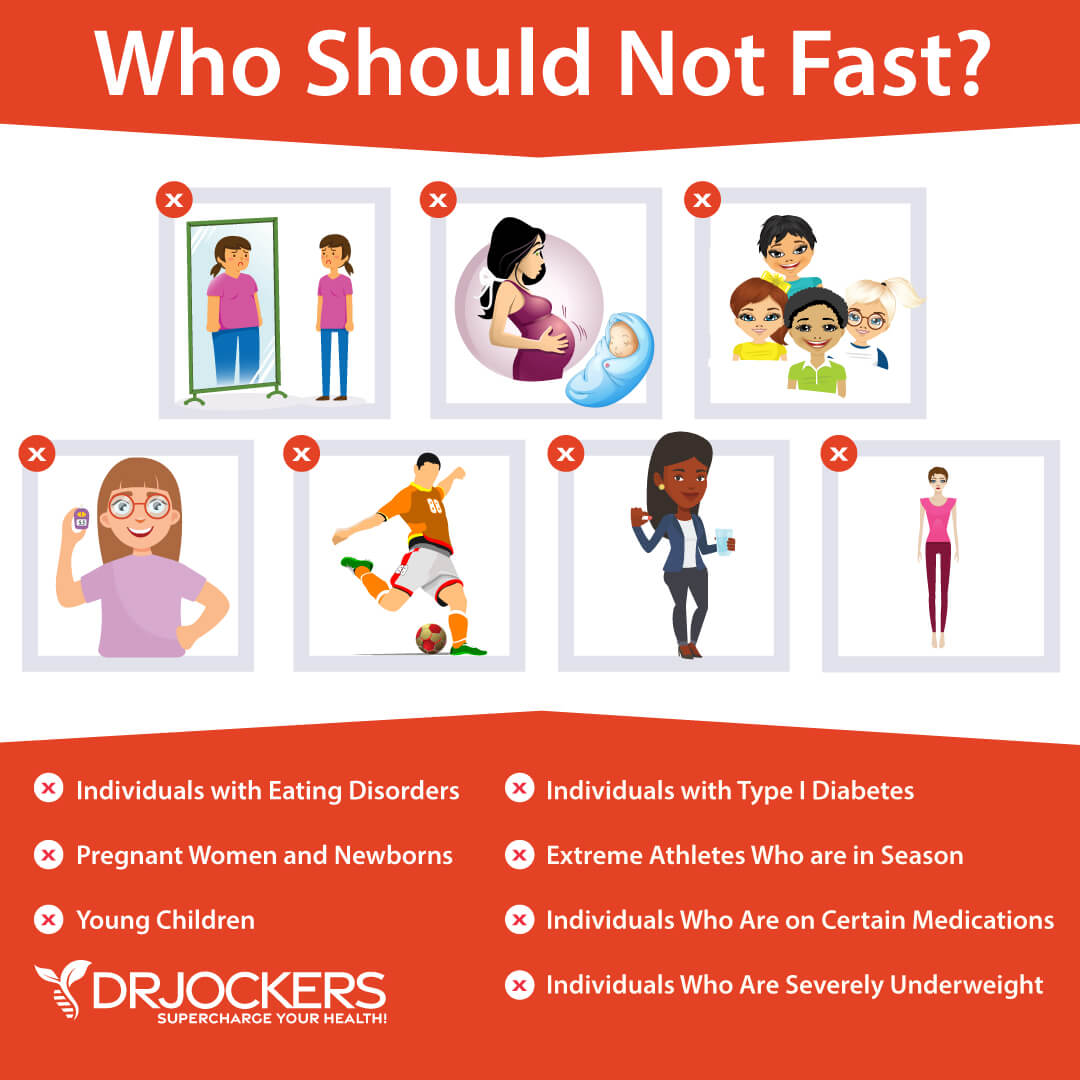
The Fasting Transformation Book
If you want to improve your metabolic health and burn fat, improve your brain and overall energy levels…intermittent and extended fasting are incredibly powerful strategies.
That is why I want to introduce you to my best-selling book, The Fasting Transformation. It goes into the most recent scientific research and strategies for implementing intermittent and extended fasting into your life.
This book is the best book on fasting the world has ever seen and I have read them all! It is now, my great honor to present this to you and I am deeply appreciative of your support!
Final Thoughts
Honoring your body with a Sabbath from food is an incredible idea. A one day fast can help to improve autophagy, reduce inflammation, support the immune system, and lower the risk of disease.
I recommend that you develop a one day fasting practice and ritual. Follow my tips on how to do a one day fast to experience optimal results in body, mind, and soul. If you want to learn more about intermittent fasting, go ahead and check out my Fasting Transformation Program here
If you want to work with a functional health coach, I recommend this article with tips on how to find a great coach. Our website offers long-distance functional health coaching programs with our world-class team of health coaches. For further support with your health and other goals, just reach out—our fantastic coaches are here to support your journey.

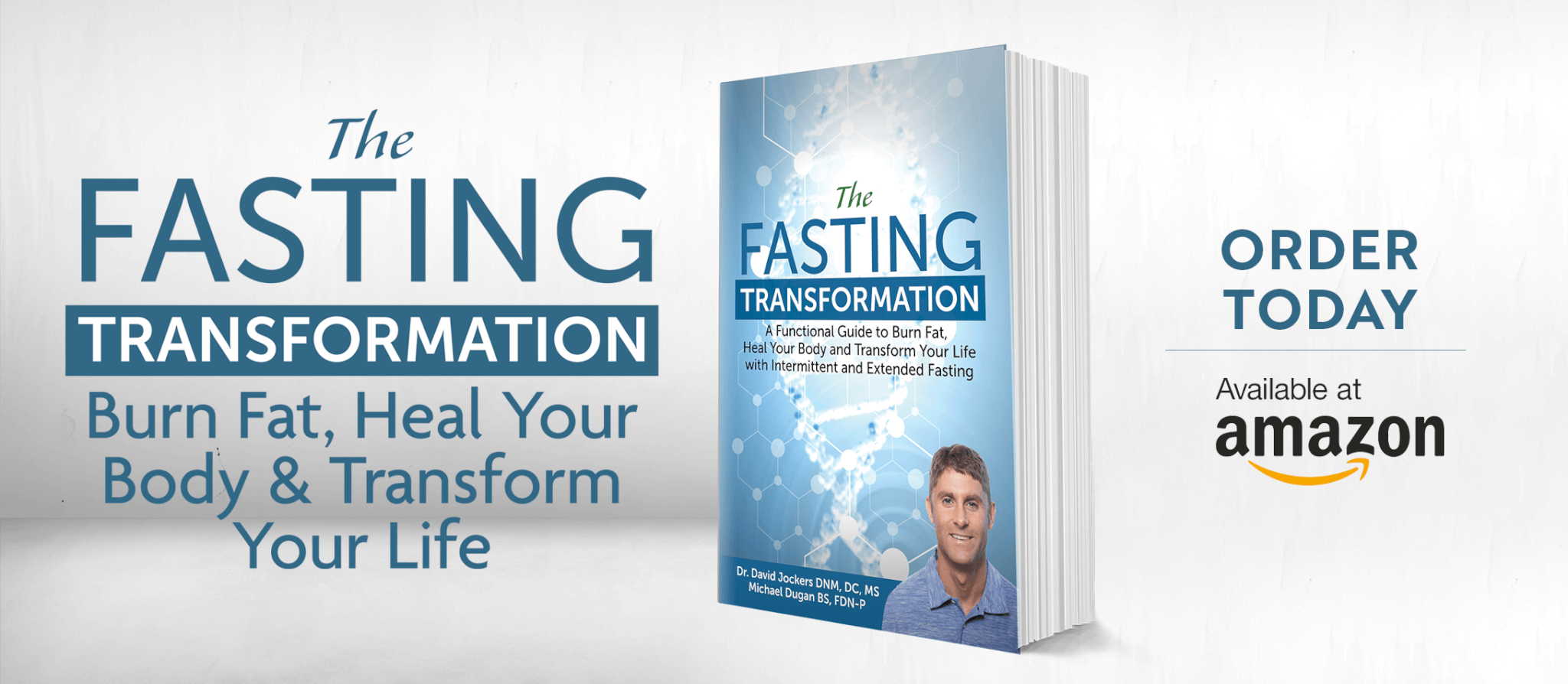



When Jesus was nailed to the cross, the sun went out and it got dark and very cold for some time and back to day. Sunday a new Sabbath day was created in his honor in remembrance of that day. That special day when he gave himself in exchange for our salvation. So we all now can repent and pray and earn to live eternally in heaven.
I like the idea of fasting on the Sabbath, or Saturday. Wonderful teachings on fasting. Ty!
Thanks Emily!
I’m having a knee replacement and am a regular faster. Have followed you for years. What do you recommend for pre-post surgery re fasting (not inc surgery prep fasting.) Thank you.
Thanks for sharing Maria. The bible never says anything about a “new Sabbath,” that was a later interpretation but isn’t scriptural and Jesus himself honored the Sabbath on Saturday. With that said, I don’t think there is anything wrong with having your Sabbath be on Sunday. Blessings to you!
Actually there is no evidence from scripture that the Sabbath was changed from 7th day Saturday to Sunday 1st day, as we know the disciples and the early church continued to observe the 7th day sabbath until 17th century when it was changed by Pope Constintine. There is no other day that is recorded where God rested, blessed and sanctified and told His church to keep(Gen 2:1-3:Heb 4:1-5, God is consistant.
Thank you Dr jockers for including this article on spiritual fasting. I want to Fast more on the Sabbath❤️🙏🏾
am I able to buy any of these books like a real book, I find it hard to read of my phone or computer all the time, the screens make me sleepy
We are writing a hardcover book on Fasting but don’t have it out yet. However, you can get my Keto Metabolic Breakthrough book here: https://amzn.to/3bceTb1
Thank you, Dear Dr. David Jockers,
I also like to read books rather than on computer or phone, though I just finished your 59 pages e-guide,- activating Autophagy. Great info. In the past have done long fast but that did not help to gain weight and improve my digestion. For the last two and half months, I have been doing one 16 hrs fast per week, and then last two weeks I did 24 hr, and yesterday day I did one 36 hrs/week. Enjoying. Not yet able to go-to keto diet…but slowly as you suggested to avoid Keto flue. I found great benefit in reducing bread, potatoes, and grains.
Can not wait to get a hard copy of your book(s)
with deep gratitude
Mahendra
Great to hear that Mahendra!
I’ve been doing an 18:6 or 16:8 fast for a while and am looking at doing a 24-36 hour fast once a week moving forward with the goal of building to a 5:2 fasting schedule. I’ve struggled with weight my entire life and when I was young lost a lot of weight by doing a single meal a day at dinner most days, while I don’t want to go to that again, I do want to do consistent fasting.
My questions is about what to do when coming out of a fast which I have consistently struggled with typically going into a full meal for lunch around noon. You recommended protein shakes, I’ve typically avoided these and instead drink 8-16 ounces of milk with every meal and occasionally in the middle of my eating window. This was something my old trainer recommended instead of shakes since most contain large amounts of added sugars which we attempted to minimize and keep to dextrose and lactose based sugar when possible (we were trying to minimize added sugar to 10 grams or less a day). Is a cup of milk fine or is there specific shake that you recommend for breaking a fast that isn’t high in added sugars like sucrose or fructose
Hey Louis,
Yes, I would recommend if you are breaking an intermittent fast that you do it with a low-carb meal such as a protein shake without sugar (you can find protein powders that have no or very little sugar). You could also do a healthy chicken salad with olives, avocado and olive oil dressing. I would avoid drinking the milk and reduce overall dairy consumption. You can do butter, but I would take out cheese, dairy milk, yogurt, etc. as I see dairy being a significant problem for most people who are trying to lose weight.
Thanks for the article! Very helpfull and well done.
Question: It is posible to get problems with your stomach (ex: ulcer or other problems) on intermitent fasting or extended fasting? If the stomach acid has nothing to “eat”, there is posible that it will “eat” your stomach and produce gastritis, ulcer etc. ?
Greets
Adrian
Hey Adrian, no this does not happen. Their is a protective mucosa in the stomach that protects the tissue from the acid. When you are fasting, your stomach acid sits in the 3-3.5 range. In order to digest protein effectively, the acid levels need to get down to 1.5-2.2. This is a very energy demanding process. When we fast, we divert that energy that is normally used for digestion into healing. The cause of stomach ulcers is not stomach acid. The cause is an H Pylori infection that weakens the mucous membrane and damages the stomach lining, gastritis and/or prescription drug side effects.
Thank you very much for your reply Dr. Jockers.
Thank you for the excellent article, I’m sharing it on my blog. Nice work and study.
Great article thank you. I am a 49 year old woman heading into menopause. I have read so much conflicting information about fasting for menopausal women. Some saying it helps others saying need protein within half an hour of waking and consistent meals throughout the day? It becomes very confusing. Also I followed one doctor who said a very small amount of milk in hot drinks doesn’t spike insulin enough to impact fasting? Can you advise please?